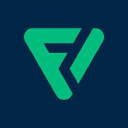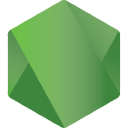My Keyword Research Tool Had Paying Customers Within 24 Hours Of Launch
Hi there! My name is Yossi Segev, and I am the founder of SEO Stuff, an excellent keyword research tool with a unique pricing model.
Instead of paying the traditional fixed monthly subscription, SEO Stuff customers buy credits as a one-time payment. Those credits are then used to generate keyword reports.
People who previously were restricted to limited, free keyword research tools due to the extreme SEO industry pricing can now pay only for what they use and enjoy a high-tier keyword research tool.
Many of my customers are pre-revenue entrepreneurs or solo founders who don't practice SEO work on a daily basis, so a fixed subscription doesn't make any sense for them.
I launched SEO Stuff on the 4th of December, 2023, and have made $1,823 from 116 unique customers so far. But the number that excites me is my returning customer's rate.
This rate measures how many customers bought a credit pack, loved the product, and returned to buy at least another pack, and it stands at 53%. It tells me I'm on the right path.






















